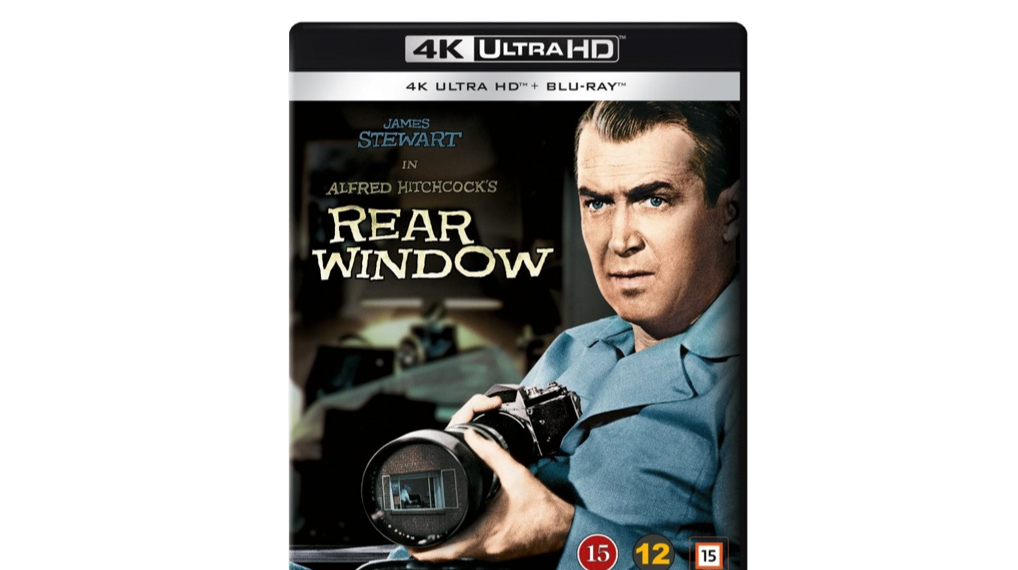TL;DR
Dive into the enduring brilliance of Alfred Hitchcock's *Rear Window* as it arrives on stunning Ultra HD! This review explores the film's captivating premise of a confined photographer witnessing a potential crime from his apartment window, a narrative that has influenced countless films and shows. While James Stewart and Grace Kelly deliver memorable performances, the review notes a dated aspect in their significant age gap. However, the UHD transfer is lauded for its exceptional visual clarity and solid audio, complemented by a treasure trove of bonus features. Despite its age and the familiarity of its tropes, *Rear Window* remains a definitive cinematic masterpiece. Discover if this 4K release is the ultimate way to experience it – read on for the full review!
Alfred Hitchcock, the renowned English director, was born in Leytonstone, Essex in 1899. His directorial debut in 1925 was not a thriller, but rather a romantic drama entitled The Pleasure Garden. In 1929, he directed his first sound film, Blackmail. During the 1940s, he transitioned to Hollywood, marking the beginning of his globally recognized career in the United States. His early films, demonstrating a clear ambition to innovate and present audiences with novel experiences, such as Strangers on a Train, Rope, and The 39 Steps, solidified his reputation as a director to watch. In 1954, Rear Window (Fönstret mot gården) premiered, and nearly 70 years later, this cinematic masterpiece is being released on Ultra HD in a comprehensive edition that I am eager to examine.
L.B. Jeffries (James Stewart), a professional photographer, is confined to his apartment due to a broken leg sustained on assignment. Exacerbating his situation, he is enduring a heatwave, compelling him to keep the window facing the courtyard perpetually open. With limited activities available, he begins observing his neighbors. Among them are a couple who frequently sleep on the fire escape, a frustrated musician, an artist, and a woman who enthusiastically dances whenever possible. One evening, amidst the silence, he hears a scream. Subsequently, one of his neighbors exhibits peculiar behavior, leading Jeffries to suspect that something is amiss.
A challenge in viewing Rear Window for the first time in the present day is the pervasive influence it has had on subsequent filmmakers. Numerous adaptations and homages exist, including a direct remake starring Christopher Reeve (one of his few roles after his accident), as well as episodes of television series such as The Simpsons and Castle that draw heavily on its themes. Consequently, one might feel a sense of familiarity even before experiencing the original. However, this prior exposure does not significantly detract from the viewing experience, as the original remains the definitive version.
James Stewart, a frequent collaborator with Hitchcock, appeared in several of the director’s films. While his acting style may appear somewhat stylized to modern audiences, he effectively embodies the charm required for the role. Grace Kelly portrays his girlfriend, Lisa, a character of remarkable poise and independence. Her performance feels surprisingly contemporary, transcending the conventions of 1950s cinema. However, the romantic relationship between Jeffries and Lisa presents some challenges. The significant age difference between the actors, exceeding 20 years, introduces an element of discomfort. This casting practice, prevalent at the time (and, regrettably, persisting in some instances), often paired male actors of any age with significantly younger female co-stars, a trend that somewhat dates the film.
The UHD edition presents the film with exceptional visual clarity. Rear Window has never looked better. Color reproduction is superb, and while the image may exhibit some softness in certain scenes, this is attributable to the original source material and not a deficiency of the UHD transfer. The audio track is presented in DTS 2.0, a limitation dictated by the original recording. Nevertheless, the sound quality is perfectly adequate, with crisp dialogue and immersive ambient sounds. The release also includes a wealth of supplemental materials, offering fascinating insights into the film’s production. Notably, the commentary track by John Fawell, author of Hitchcocks Rear Window: The Well-Made Film, is particularly insightful.
In conclusion, it is difficult to resist bestowing a “must-see” rating upon this classic. Even prior to its release on UHD, Rear Window merited inclusion on every film enthusiast’s list of essential viewing. Now, presented in pristine condition, there are no justifiable reasons to postpone experiencing or rediscovering this cinematic treasure with this exceptional UHD 4K re-release.

